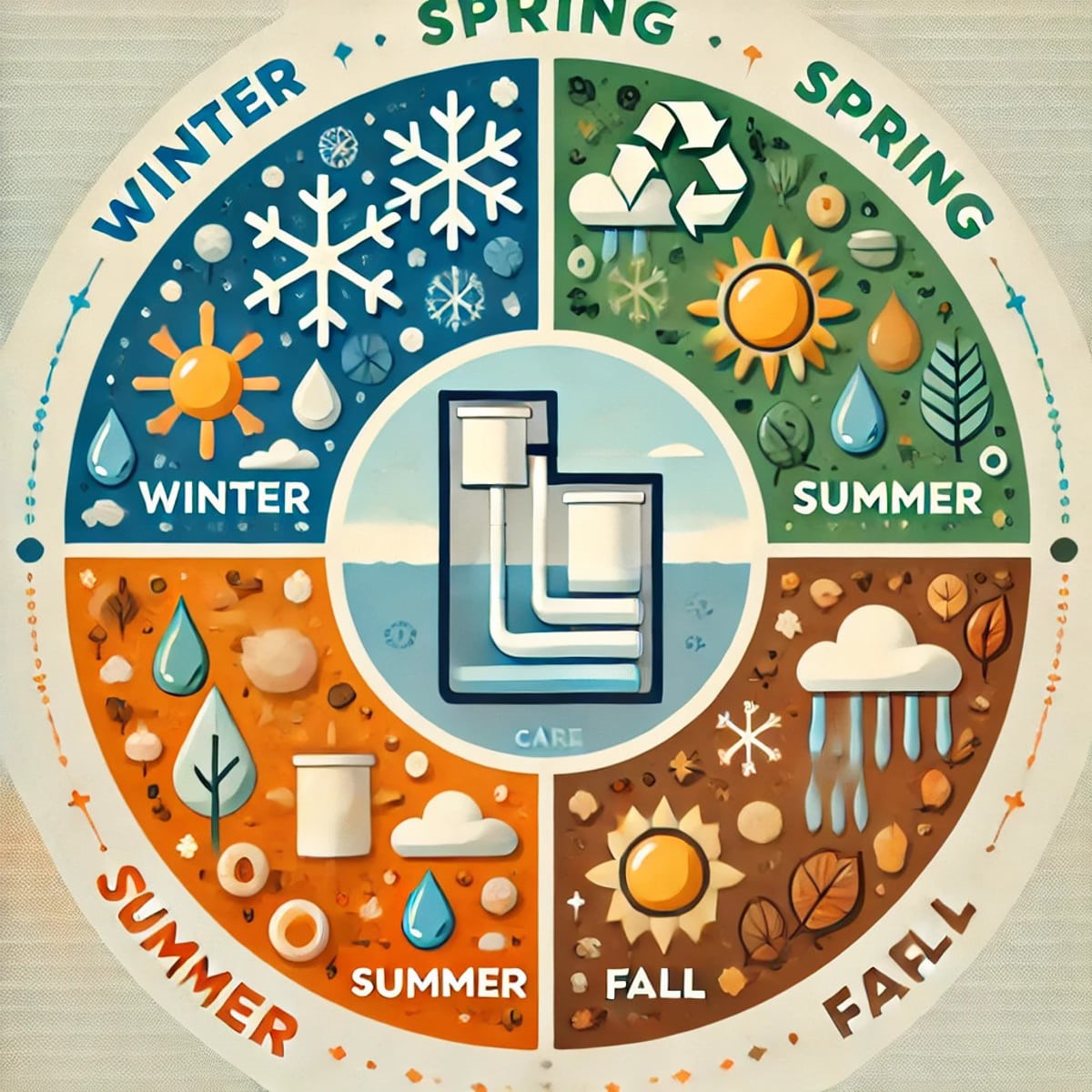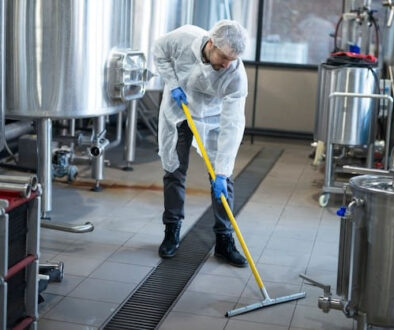Seasonal Septic Tank Care: Preparing for Winter and Summer
If you’re a homeowner with a septic system, you already know it requires a bit of attention to keep everything running smoothly. While septic tank maintenance is a year-round task, the seasons bring their own unique challenges. By understanding how to care for your system before the temperatures drop in winter or rise in summer, you’ll save yourself from headaches — and expensive repairs.
Ready to dive into some seasonal septic tank care tips? Let’s explore what you should know for both the coldest and hottest months.
Why Seasonal Septic Tank Care Matters
Your septic system works all year long, but weather changes can impact its performance. Cold winters can freeze parts of the system, while summer heat can encourage bacterial imbalances. With a little planning, you can protect your septic system no matter the season.

Septic tank pumping companies will tell you that proper care can extend the life of your system and prevent costly breakdowns. But when and how you maintain your tank is key.
Winter Septic Tank Care
Winter brings freezing temperatures and often heavy snow, which can cause significant issues for your septic system. If you’re living in an area prone to freezing weather, here’s what you need to know about winterizing your septic system.
1. Insulate Your System Naturally
One of the easiest ways to prepare your septic tank for winter is to allow the grass to grow longer over your septic tank and drain field. This creates a natural layer of insulation, helping to trap heat and protect the system from freezing. Avoid cutting your grass too short in the fall!
2. Watch Water Usage
During winter, you’re likely to spend more time indoors, which can lead to increased water usage. Overloading your septic system in the winter can cause stress on the system. Avoid doing multiple loads of laundry in a single day, and consider spacing out showers to prevent water from overloading the system.
3. Fix Leaks Before They Freeze
Even small leaks in your plumbing can cause problems for your septic system in the winter. Leaky faucets or running toilets can lead to water continuously trickling into your septic tank, which may cause the water to freeze in pipes. Before the cold weather hits, make sure to fix any leaks around your home.
4. Get Septic Tank Pumping Done Early
Septic pumping services are essential to maintaining your system, but winter makes pumping more challenging. Cold weather can freeze the ground, making it hard for septic tank pumping companies to access your tank. It’s best to schedule a septic tank emptying service before the first frost arrives.
Summer Septic Tank Care
The heat of summer comes with its own set of septic system challenges. As temperatures rise, so does the demand for water in many households — especially if you have visitors or kids home from school. Here’s how to keep your septic system functioning smoothly in the summer heat.
1. Spread Out Water Use
Just like in winter, water usage plays a major role in your septic system’s health during summer. Running dishwashers, laundry machines, and sprinklers all at once can overload your system. Spread out water usage to give your septic system time to properly treat wastewater.
2. Be Careful With Landscaping
Summer is the perfect time to spruce up your yard, but be careful where you dig. Your septic tank and drain field should be clear of any deep-rooted plants or trees, as their roots can damage the system. Specific plants like shallow-rooted grasses, perennials, and wildflowers are generally safe options to plant around your septic system. Avoid trees like willows and oaks, which have aggressive root systems that can interfere with your pipes.
3. Manage Bacterial Balance
High temperatures can disrupt the bacterial balance in your septic system. These bacteria are crucial because they break down solids, preventing clogs and allowing wastewater to properly filter through the drain field. Excessive water use or harsh chemicals can kill off these bacteria. Make sure to limit the use of chemicals like bleach, and consider using septic-safe cleaners and products.
4. Plan for Summer Parties
Hosting a backyard BBQ or family reunion? Keep your septic system in mind when inviting a crowd. A sudden spike in water usage from extra guests can overwhelm your septic system. If you’re expecting a large group, encourage guests to space out bathroom visits, or even consider renting a portable toilet for the event.
Signs Your Septic Tank Needs Attention
Whether it’s winter or summer, some signs indicate that your septic system may need immediate attention. If you notice any of the following, it’s time to call in the professionals for a septic tank pumping service.
- Foul odors: A strong, unpleasant smell around your yard or near your drains could indicate that your tank is full or malfunctioning.
- Slow drains: If water takes longer than usual to drain from sinks, tubs, or toilets, your septic tank may be nearing capacity.
- Standing water: Pools of water around your drain field could be a sign of a saturated system, especially after heavy rain or increased water usage.
- Backed-up toilets: Sewage backing up into your home is a clear sign that your septic tank needs to be emptied or repaired immediately.
Regular Maintenance for Year-Round Peace of Mind
While preparing your septic system for winter and summer is essential, regular maintenance throughout the year is the key to preventing larger issues. The recommendation of pumping every 3-5 years is a good general guideline. However, factors like household size, water usage, and the size of your septic tank can influence the actual frequency. It’s best to consult with septic tank pumping companies for a personalized assessment, as they can take these factors into account and provide a more tailored recommendation.
When scheduling routine maintenance, look for septic tank emptying services with a solid reputation in your area. A professional service can ensure that your system is properly inspected and maintained, giving you peace of mind throughout the year.
Expert Tip: The Role of Bacteria in Your Septic System
As previously mentioned, bacteria in your septic system play an essential role in breaking down solid waste. Without the proper balance of these bacteria, your system would struggle to function, leading to clogs and other costly issues. Harsh cleaning chemicals can disrupt this balance, so always opt for septic-safe products.
According to the Environmental Protection Agency (EPA), properly maintained systems can last up to 40 years or more, emphasizing the importance of routine maintenance and care. Trustworthy septic tank pumping companies can help monitor your system’s bacterial health and suggest treatments if needed.
Final Thoughts: Protect Your Septic System
Seasonal changes can be tough on your septic system, but with a little extra care, you can avoid major issues. Whether it’s insulating your system for the winter or spreading out water use during the summer, these small steps can make a big difference.
Need help maintaining your septic system? Don’t wait until there’s a problem! Contact a local septic tank pumping company to schedule regular maintenance and keep your system in top shape, no matter the season.


